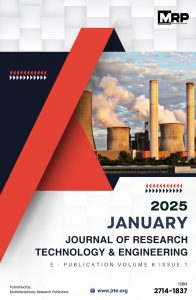Downloads
Nanofertilizer use for Sustainable Agriculture
There will be higher pressure on global agricultural systems to provide food security for the growing world population with environmental security in the coming years. The chemical fertilizers lead to the loss of nutrients from agricultural fields via leaching and gaseous emissions that create environmental pollution and climate change. Advanced nano-engineering is used to boost …
Review on the Use of Nanotechnology in Fertilizers
These The field of nanotechnology has seen tremendous growth over the past and the present decade, and it has improved and impact a measurable effect on all the sectors in the society, such as medical (Drug delivery, biomarker mapping, molecular imaging, detection, gene delivery, diagnosis, and diagnosis monitoring), food (production, food processing, food safety, food …
Carbon Footprint Analysis: Promoting Sustainable Development
An overview of the carbon footprint analysis indicates a measure of sustainability in various countries. Their carbon footprint values, carbon emission in MtCO2, carbon per capita emissions used to identify their sustainability patterns by comparatively observing the world’s top rank countries, and their root causes. The greenhouse gas reduction has become a key concept in …
Carbon Footprint Analysis: Promoting Sustainable DevelopmentRead More
Nanofertilizer for Precision and Sustainable Agriculture
Nanotechnology has shown promising aims to contribute to sustainable agriculture. This article explores recent advances in nanotechnology applications in sustainable agriculture, including crop production and defense, focusing on nanofertilizers. Slowrelease fertilizers are believed to have the potential to address most of the conventional fertilization challenges. Nanofertilizers appear as a promising alternative to agricultural chemical fertilizers. …
Nanofertilizer for Precision and Sustainable AgricultureRead More
Nanofertilizer Use for Modern Agriculture
Performing all the farming practices, sustainably is the key to achieve agricultural sustainability. It is necessary for conservation and enhancement of the natural resources such as soil, water, plant and animal diversity, vegetation cover, renewable energy sources, climate, and ecosystem services, which are considered the fundamentals for healthy, long-term functioning of agriculture. However, it is …
ISSN
2714-1837
| M | T | W | T | F | S | S |
|---|---|---|---|---|---|---|
| 1 | 2 | 3 | ||||
| 4 | 5 | 6 | 7 | 8 | 9 | 10 |
| 11 | 12 | 13 | 14 | 15 | 16 | 17 |
| 18 | 19 | 20 | 21 | 22 | 23 | 24 |
| 25 | 26 | 27 | 28 | 29 | 30 | 31 |
Our Visitors






 Users Today : 25
Users Today : 25 Total Users : 28440
Total Users : 28440 Views Today : 52
Views Today : 52 Total views : 80885
Total views : 80885 Who's Online : 0
Who's Online : 0 Your IP Address : 18.222.164.159
Your IP Address : 18.222.164.159

